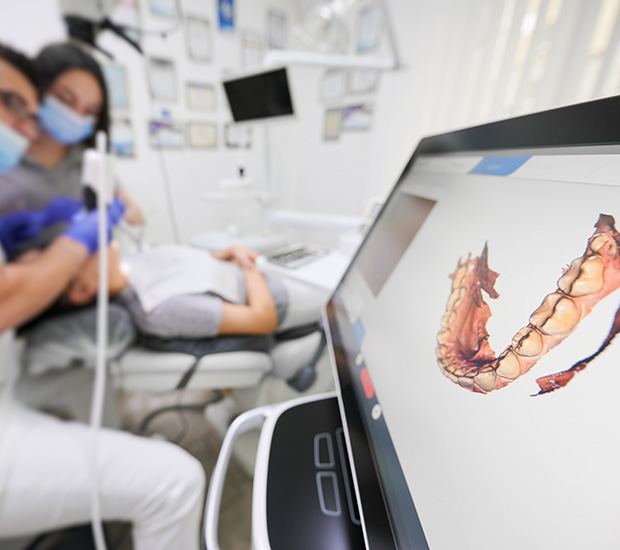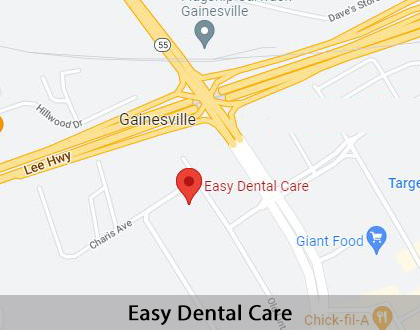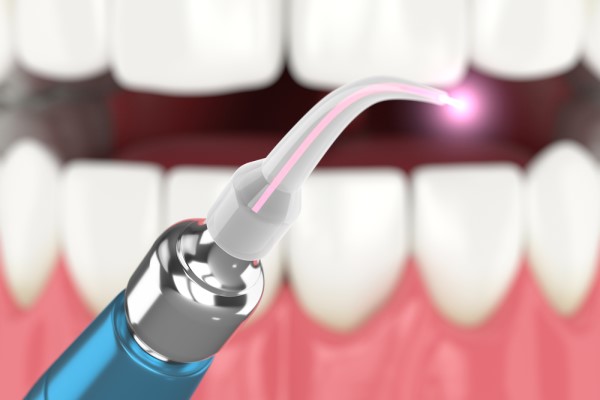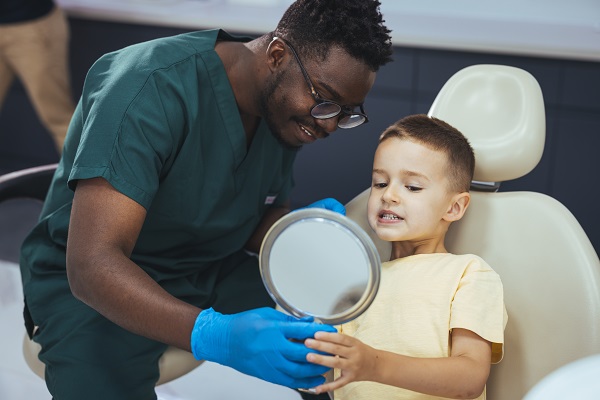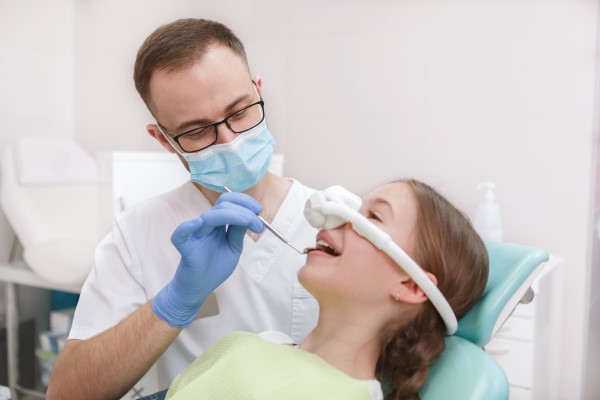Digital Dental Scanner Gainesville, VA
Using a digital dental scanner is a win-win situation for dentists and their dental patients. Digital dental scanners have revolutionized modern-day dental practice, allowing dentists to acquire more accurate information about the status of a patient’s teeth and to transmit this information more efficiently and reliably.
Digital dental scanning is available at Easy Dental Care in Gainesville and the surrounding area. We offer a range of services designed to reduce your child's risk of cavities. Call us at (703) 651-1566 to learn more.
The History of Digital Dental Scanners
Digital dental scanners first emerged onto the dentistry scene in the 1980s, according to the Inside Dentistry journal. The digital dental scanner grew in popularity because it bypasses the physical and mechanical process of mapping the mouth with conventional impression material. Instead, it uses scanning technology to create 3D images of the teeth. For dental patients, a digital dental scanner experience is much faster and more comfortable than previous methods of impression-taking. Most patients prefer not lying in a dental chair with a mouth stuffed full of an impression tray, or enduring multiple dental appointments to facilitate a single repair.
The 3D images captured can then be used to model solutions to an array of dental problems. Since the development of the first digital scanner in the 1980s, further advances have been made, allowing for even more streamlined image gathering. Many modern scanners can illustrate exactly where tooth decay, root and nerve damage, and other severe conditions lie. This helps the dentist curate a detailed treatment plan that addresses all concerns by priority.
“The digital dental scanner grew in popularity because it bypasses the physical and mechanical process of mapping the mouth with conventional impression material.”
How Digital Dental Scanners Help Detect Cavities
Digital scanning technology can help a dentist identify a cavity, or an area of tooth decay or caries, in addition to its impression-taking functionality. The light waves that are used to create an image of the teeth with a digital scanner can help identify areas of tooth decay in places that might be hard to visualize with the naked eye. This often occurs with grooves or cracks in the teeth, or in tight spots in between the teeth, according to the Dental Materials Journal.
Cavities that originate in these subtle regions may not be felt or detected by patients until much later, so digital scanning is a formidable partner in early detection and preventive care. An added benefit of using a digital scanner to detect cavities versus traditional radiography is that the technology operates in real-time and is completely radiation-free, allowing dentists and their patients significant peace of mind.
“An added benefit of using a digital scanner to detect cavities versus traditional radiography is that the technology operates in real-time and is completely radiation-free, allowing dentists and their patients significant peace of mind.”
How Digital Dental Scanners Help With Dental Impressions
Digital dental scanners can create a 3D image of a patients’ teeth without the need for extensive and unwieldy preparation with conventional impression materials. With digital scanning technology, a dentist will first use tools to retract the tissues in the mouth in order to properly visualize the teeth. These surfaces will then be dried.
After these simple preparation steps, the digital dental scanning technology uses light beams and a camera to capture geometric optical images of the teeth from many angles. Using a combination of the images, we can create a highly-accurate 3D scan or model. This allows both the dentist and the patient to understand their case and discuss possible treatments.
“After these simple preparation steps, the digital dental scanning technology uses light beams and a camera to capture geometric optical images of the teeth from many angles.”
Check out what others are saying about our dental services on Yelp: Digital Dental Scanner in Gainesville, VA
Procedures That Incorporate Digital Dental Scanners
Digital dental scanners are useful for a variety of dental procedures, including:
- Mouth-guard fittings
- Orthotic fittings
- Orthodontic assessment
- Crown and bridge implants
- Other restorations (inlays, onlays)
As mentioned previously, they can also be helpful in identifying areas of tooth decay and may be utilized more in the future for routine dental exams because of their fast and radiation-free capabilities.
“Digital dental scanners can be used in a variety of dental procedures, including mouth-guard fittings.”
Questions Answered on This Page
Q. What is a digital dental scanner?
Q. How do digital dental scanners detect cavities?
Q. What is the process of getting an impression taken with a digital dental scanner?
Q. What procedures use digital dental scanners?
Q. Why are digital dental scanners advantageous?
People Also Ask
Q. What are the benefits of a pediatric dental office?
Q. What should I do if my child is overdue for a dental checkup?
The Advantages of Digital Dental Scanners
Digital dental scanners afford many advantages. Compared to the traditional impression-taking process, they reduce the risk of infection. Dental patients, particularly children, can experience a faster and more comfortable impression-taking process with a digital scanner.
Problems with the teeth can be addressed in a more timely and efficient manner. For some procedures, depending on the scanner, a patient may be able to have the entire restoration take place in the course of a single visit. One-day restorations are particularly optimal for children and patients with special needs who have difficulties enduring dental interventions.
“For dental patients, particularly children, the process of dental imaging with a digital scanner is faster and more comfortable than the conventional impression-taking process.”
Frequently Asked Questions
Q. What is CAM/CAD technology?
A. Computer-aided design/computer-aided manufacture (CAD/CAM) is a technology in which a digital system creates an image of the teeth and then feeds this image directly into another system that can create a model of the teeth out of a block of material. Depending on the patient’s specific need, this material may then be physically attached to their organic teeth.
Q. Does a dentist need to use a powder with a digital dental scanner?
A. With some digital dental scanners, a powder material will need to be placed on the surface of the teeth to help the camera recognize all of the tissue included in the impression. Other scanners do not require this tool and can capture full-color optical images of the teeth.
Q. Why would a dentist prefer to use a digital dental scanner?
A. For dentists, the images created by a dental scanner can be more accurate than those generated by traditional impression-taking. Additionally, the transmission of these digital dental impressions is much more robust using digital dental scanning technology. Physical impression models have to be packaged very carefully, shipped to a lab, and are subject to a host of complications in this process, such as mishandling that could lead to wear and tear, temperature variations that can lead to warping, and even simple misplacement of the item during transport.
Q. How do dental scanners improve a dentist’s communication and record-keeping?
A. A digital dental scanner allows a dentist to immediately transmit data about a patient’s teeth in a way that preserves the full integrity of the image forever, which means that the necessity of re-impressions is very low. The 3D images that are produced by a digital dental scanner can be digitally stored, which helps dentists more easily track changes in a patient’s teeth.
Quality Pediatric Dental Services Can Transform Smiles
By visiting us as soon as possible, our team can help get your child the professional treatment they need.
Definition of Pediatric Dental Terminology
Call Us Today
To learn more about the advantages of digital dental scanners versus the conventional impression-taking process, contact 703-651-1566 today.
If you live in the Gainesville area, call 703-651-1566 for an appointment in our Gainesville office.
Helpful Related Links
- American Dental Association (ADA). Glossary of Dental Terms. 2021
About our business, license, and website security
- Easy Dental Care was established in 2014.
- We accept the following payment methods: American Express, Cash, Check, Discover, MasterCard, and Visa
- We serve patients from the following counties: Prince William County, Fairfax County, Fauquier County and Loudoun County
- We serve patients from the following cities: Gainesville, Bristow, Haymarket, Manassas, Manassas Park, Woodbridge, Centreville, Warrenton, Aldie and Chantilly
- VA (License #401414352). View License Information and Specifics
- National Provider Identifier Database (1144656356). View NPI Registry Information
- Norton Safe Web. View Details
- Trend Micro Site Safety Center. View Details
Back to top of Digital Dental Scanner
